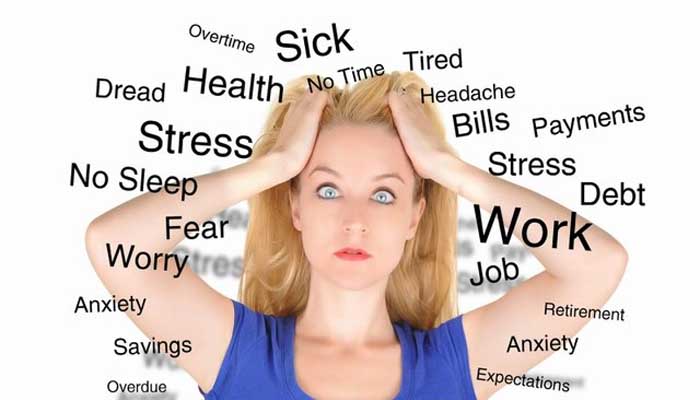Classified in the category of sleep disorders, insomnia is a very largely underestimated health problem. It affects nearly 20% of the population and causes dramatic consequences on the social and professional life as well as on the health of these victims. It has therefore become normal to turn to the purchase of a sleeping medication.
The latter then often resort to several treatments, including the use of medications to regain quality sleep. But what are these medications that help their millions of consumers? What are their consequences? We take stock in this complete file on medications for sleeping.
Before discussing medications that can help you sleep better, it is necessary to take stock of what insomnia is. This involves, among other things, a reminder of its definition, its causes, and its consequences.

What is insomnia?
Insomnia is characterized by insufficient quality or quantity of sleep despite favorable conditions. It manifests in several ways:
- Difficulty Falling Asleep: Struggling to fall asleep at night, often lying awake for hours.
- Early Awakening: Waking up too early and being unable to return to sleep.
- Poor Sleep Quality: Achieving sleep but experiencing frequent awakenings or nightmares.
- Total Insomnia: Inability to fall asleep at all, the most severe form of insomnia.

What causes insomnia?
Insomnia can be classified into primary and secondary types:
Primary Insomnia: Not linked to external causes, including:
- Paradoxical Insomnia: Complaints of insomnia despite adequate sleep.
- Psychological Causes: Stress or trauma.
- Idiopathic Insomnia: Unknown causes.
Secondary Insomnia: Associated with external factors such as:
- Medical conditions (e.g., hyperthyroidism, sleep apnea, restless legs syndrome).
- Environmental factors (e.g., noise, light).
- Psychological factors (e.g., stress, anxiety).

What are the consequences of insomnia?
Finally, before we dwell on the drugs that can treat insomnia, let’s talk about its consequences. It is indeed these latter that justify the need for treatment to cure it.
The first consequence of insomnia is logically intense fatigue (due to lack of sleep). This will be associated with symptoms such as daytime sleepiness, difficulty concentrating, irritability, memory problems, and a disruption of the biological clock.
Although they may seem harmless at first glance, these consequences are dramatic. Fatigue, drowsiness, and difficulty concentrating can, for example, lead to accidents at work or road accidents.
Similarly, in the case of chronic insomnia, these repercussions extend to other areas of life. In adults, it can result in absenteeism or a drop in work performance, while in children, there are difficulties at school.
Finally, insomnia can also worsen the symptoms of other diseases or even cause the appearance of certain symptoms. For example, insomnia can be associated with migraines, digestive problems (diarrhea, constipation) aches and pains, or other painful symptoms.

What medications should I use to sleep?
Commonly referred to as sleeping pills (or hypnotics), drugs that can induce sleep fall into several classes. Several types of medications can aid sleep, each with specific effects and considerations:
- Benzodiazepines: Commonly used but associated with risks such as addiction and daytime drowsiness. Examples include lorazepam (Temesta) and temazepam. Newer options like Zolpidem (Stilnox) offer faster onset but still carry side effects.
- Sedative Antihistamines: Primarily for allergies but sometimes used for insomnia. Hydroxyzine and doxylamine (Donormyl) can cause side effects such as dry mouth and drowsiness.
- Sedative Antidepressants: Used in low doses for their sedative effects, although not primarily intended for insomnia.
- Melatonin and Melatonin Agonists: Melatonin regulates the sleep-wake cycle and can be supplemented to aid sleep. Melatonin agonists mimic its effects.

Sleep medication: benzodiazepines and related molecules in the fight against insomnia
Benzodiazepines are the most widely used family of sleeping pills. These molecules have a sedative and anxiolytic action that is particularly effective in insomnia.
For example, there are lorazepam (Temesta), temazepam, flurazepam, and oxazepam which are the most used benzodiazepines. Diazepam ( Valium ) widely used in the 60s is gradually being abandoned, because it induces significant drowsiness the day after its use.
However, due to their dangerous side effects (including addiction and dependence), benzodiazepines should not be used for long periods.
Benzodiazepine-related molecules such as Zolpidem ( Stilnox ) and Zopiclone ( Imovane ) are closer to perfect hypnotics. They combine a very short onset of action with a shorter half-life.
They therefore allow you to fall asleep very quickly and wake up feeling refreshed and are perfect for people who have trouble falling asleep. However, they also have side effects that limit their use.
Note: There are other benzodiazepine hypnotics with a longer duration of action ( Lormetazepam, Havlane, Mogadon, Nuctalon). These have a higher risk of daytime sleepiness.

Sedating antihistamines as sleep medication
Although the main indication for antihistamines is allergies, some molecules in this family can be used for the treatment of insomnia.
These are hydroxyzine which has a sedative and anxiolytic effect and doxylamine ( Donormyl ) which has a sedative effect. However, the use of these drugs as sleeping pills must be done under strict supervision because of the possible side effects (constipation, dry mouth, drowsiness, and low blood pressure with a risk of falling).
In addition, it should be noted that antihistamines can sometimes induce the opposite effect, namely excitation. They are also contraindicated in cases of closed-angle glaucoma or prostatic pathology.

Sedative antidepressants as sleep medication
In low doses, antidepressants have a sedative action. They are therefore very widely used as sedatives although their use in this pathology is not consecrated.

Melatonin and melatonin agonists for better sleep
Melatonin (or sleep hormone ) is secreted during the night and plays an important role in regulating the circadian rhythm. Produced in large quantities when light levels decrease, it induces sleep with an action similar to that of a sedative.
It is therefore possible to induce sleep by administering either melatonin or one of its agonists (a molecule which will attach to the melatonin receptors and reproduce its effects).

Precautions when using sleep medications
- Consult a Doctor: Always seek medical advice before starting sleep medications. Misuse can lead to dependence and other health issues.
- Avoid Alcohol and Stimulants: Do not mix medications with alcohol or stimulants like caffeine.
- Monitor Usage: Follow prescribed dosages and treatment durations. Avoid altering the dosage without medical guidance.
- Driving Precautions: Avoid driving while taking sleep medications, particularly during the initial days of treatment.
